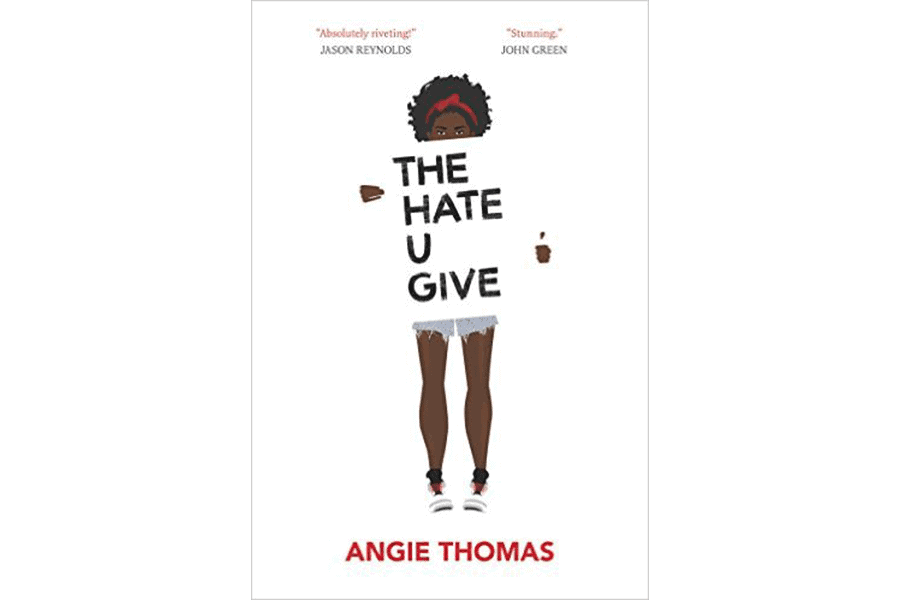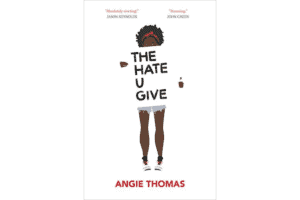
18
JunThe Importance of #OwnVoices
 As both a librarian and someone who reads and studies a lot of books, the term “#OwnVoices” comes up a lot in conversation. One of the most recent controversies regarding #OwnVoices has been with Jeanine Cummins’ book, American Dirt. The book centers on the story of a Mexican woman who must flee gang violence with her young son after the murder of her husband, and must enter the United States as an undocumented immigrant. The controversy and conversations surrounding this book lie in the fact that Cummins herself is not of Mexican or Latinx heritage, but is a white woman. The outcry from many Latinx writers and readers, along with many other voices, is that Cummins has no place telling the story of a Mexican woman’s experience, even though, as her supporters reply, she spent a year researching Mexican life for her book. Before we can unpack why exactly there is this controversy, I think it’s important to explain what #OwnVoices is first.
As both a librarian and someone who reads and studies a lot of books, the term “#OwnVoices” comes up a lot in conversation. One of the most recent controversies regarding #OwnVoices has been with Jeanine Cummins’ book, American Dirt. The book centers on the story of a Mexican woman who must flee gang violence with her young son after the murder of her husband, and must enter the United States as an undocumented immigrant. The controversy and conversations surrounding this book lie in the fact that Cummins herself is not of Mexican or Latinx heritage, but is a white woman. The outcry from many Latinx writers and readers, along with many other voices, is that Cummins has no place telling the story of a Mexican woman’s experience, even though, as her supporters reply, she spent a year researching Mexican life for her book. Before we can unpack why exactly there is this controversy, I think it’s important to explain what #OwnVoices is first.
#OwnVoices is a term coined by author Corrine Duyvis back in 2015 on Twitter, where she wrote: “Glad important discussions are being had. Would love to be able to walk away with book recommendations. How about a hashtag? #ownvoices, to recommend kidlit about diverse characters written by authors from that same diverse group” (Duyvis 2015). This term can be applied to any form of book, not just “kidlit”, but adult novels, YA, graphic novels, comics, etc. The important theme to take away from Duyvis’s tweet is that #OwnVoices is about describing and uplifting authors from marginalized groups who are writing stories about marginalized characters within that group. For example, Angie Thomas’s The Hate U Give is an #OwnVoices novel because both Thomas and her main character, Starr Carter, are black women, but The DaVinci Code is not an #OwnVoices novel because Dan Brown and his main character are both cisgender, heterosexual, able-bodied white men (who are not marginalized in our society).
The need for movements like #OwnVoices and We Need Diverse Books is so prevalent nowadays because the publishing industry has been and continues to remain very white-centered. Take a look at the New York Times Bestseller list, or browse through the shelves at your local bookstore. The number of stories featuring white, non-marginalized authors compared to marginalized authors is a huge difference, with white, non-marginalized authors and stories continuing to dominate book shelves and bestseller lists. Or, you have authors writing the stories of marginalized groups after conducting little to no research, with the justification that, “Well, no one else is writing them, so why not me?” This is where the need for #OwnVoices comes in, because the idea that marginalized authors are simply not writing their own stories is a false one. In a 2014 Buzzfeed article entitled Diversity is Not Enough: Race, Power, Publishing, author Daniel Jose Older writes about the diversity problem in publishing, and how publishers will turn away stories written by authors of color because of reasons ranging from “people don’t buy books about characters of color” to “this story isn’t marketable.”
To come back to American Dirt, this problem in publishing is the reason why Cummins’ novel caused such an uproar. It is not simply a matter to do with Cummins not being of Mexican or Latinx heritage, but it is that her story is pitched to a publisher and gets a $1,000,000 advance, while authors who are Latinx get told their stories are not “marketable”, and therefore not publishable. By using #OwnVoices to uplift diverse authors, we send the message to the publishing industry and everyone else, for that matter, “Hey! Diverse stories and authors do exist, and they are marketable and being read!”
But what does this mean for authors? Does the existence of #OwnVoices mean that an author should only write within their identity or experience? Of course not! I believe that a writer should always strive for diversity within their work, since our world is a diverse one to begin with. Problems arise, however, when an author who writes outside of their culture or experience creates a diverse story or character, and they resort to using stereotypes or inaccuracies in their representation of those characters. Island of the Blue Dolphins, for example, is a story by Scott O’Dell, a white man, which is based on the life of Nicolena native woman Juana Maria. Although the story won a Newbery Medal and has been kept on many school reading lists, the novel has been criticized by indigenous groups for O’Dell’s stereotypical portrayals of Native Americans, along with his story being historically inaccurate. Stories like Island of the Blue Dolphins or The Indian in the Cupboard or American Dirt perpetuate negative stereotypes about marginalized folks, while still highlighting the white author.
So what can we do to uplift diverse authors and diverse stories? For authors who are writing outside of their experience: research, research, research. Ask your fellow authors or friends to read your work, and accept criticism or fact-checking about any potential inaccuracies or harmful tropes that your work falls into. For readers: seek out diverse voices. A simple web search for #ownvoices will bring up so many incredible reading lists and recommendations featuring diverse authors and diverse books. Ask your local librarians for suggestions on books that not only feature diverse characters, but that have #OwnVoices authors. I would also stress the importance of listening to conversations surrounding controversial books like American Dirt or Island of the Blue Dolphins, and examining diverse stories written by authors who do not match that diversity. Does their book contain stereotypes? Does the author rely on harmful tropes to portray their diverse characters? Do some research on the author as well, and see what research they did or what experiences they have that justify their writing of this story.
Dina Delic is the Children’s Librarian at the Morrill Memorial Library in Norwood, MA. Look for her article in the June 18, 2020 issue of the Transcript and Bulletin.
